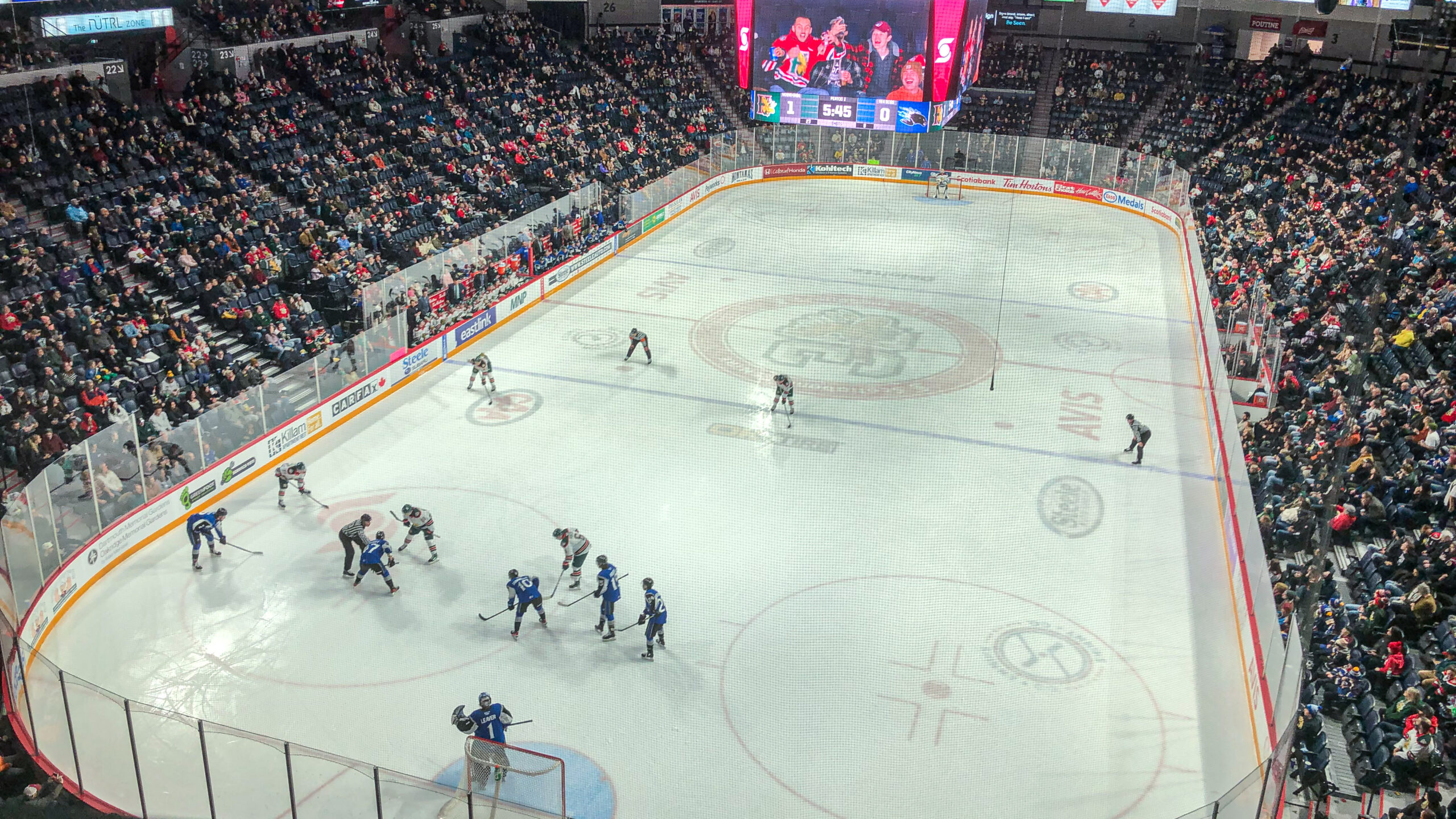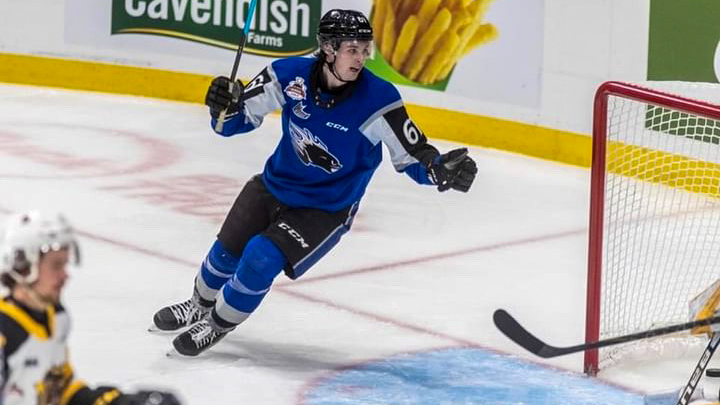Minor league hockey ‘heartbreaking’ but rewarding for players
Spending time with one family – then getting traded to live with another – can be wrenching

caption
Peter Reynolds, a Halifax Moosehead forward, faces off against his former team, the Saint John Sea Dogs, on Feb. 8 at Scotiabank CentreDavis Cooper, a Memorial cup winner with the Quebec Remparts, had “no idea” he was getting traded on Aug. 6, 2021. This came after “a good ice session and a productive conversation” with his head coach. He was 17 years old.
“We even talked about what my role would be for them that year,” said Cooper.
“The phone call lasted 15 seconds … I was pretty confused. Next thing you know, Patrick Roy is calling me from Quebec.”
Being traded is a fact of life in all levels of sports – many as young as 16 years old. However, players in the Quebec Maritimes Junior Hockey League (QMJHL) say the trades can be disruptive and emotional events.
Billet families
Players say one of the hardest parts is having to leave your billet family. The families are often parents of players or sometimes just friendly people who provide a “home away from home” for minor league players.
Some have children, some do not. But all of them, players said, felt like family.
While playing for the Cape Breton Eagles, Cooper said he had the opportunity to live with “an amazing family with two young kids” and “just loved having them around.”
Cooper would often play games, go out for dinner, and spend time with the young kids when at home.
“It was pretty emotional, giving them that call to tell them I got traded away. The kids didn’t understand it either, so they were pretty heartbroken,” he said.
Cam MacDonald, a forward for the Eagles, has been traded twice in his career. The first came after playing four years with the Saint John Sea Dogs when he was traded to Gatineau, Que. This past year, he was traded back to Cape Breton.
“Switching billet families is tough,” said MacDonald. “Each one has its one routine and lifestyle that you have to get used to.”
Moving from family to family is a harsh reality for minor league hockey players. Some live with families for over three years.
Peter Reynolds, a forward for the Halifax Mooseheads, was recently traded to the team after spending multiple seasons with the Sea Dogs.
“I became super close to them,” said Reynolds. “They became a second family.”
For Jan Sprynar, a Mooseheads forward, who played for three teams this season, leaving teammates and the billet family “was heartbreaking” … There were some tears from the eyes,” he said.
The language barrier
Of the league’s 18 teams, 12 are in Quebec. The likelihood of English speaking players having to play in a French-speaking town is high.
Life in a new language can be another harsh reality for minor league players.
For Cooper, living in Quebec City “was probably the hardest part of being traded.”
“Even going to a gas station was difficult … explaining I don’t speak French each time,” he said.
Playing so far away from home and having difficulty ordering fast food becomes stressful for some players. They say even ordering Subway and McDonald’s comes with stress.
Busy schedules
Q-league teams span over four provinces – from Rouyn-Noranda, Que., to Sydney, 2,075 kilometres away. Players spend much of their young lives on the team bus, often travelling rural highways in Quebec and the Maritimes.
Rouyn-Noranda is on a lake, 633 km north of Toronto. MacDonald said that while playing for Cape Breton, “this was the longest trip on the schedule, which was about 25 hours.”
“Cape Breton’s got the worst travel in the league … so road trips are super rough.”
Players in the QMJHL say the busy travel schedules have a big effect on their personal lives. It is a lifestyle, they say, can be pretty hard on them.
“You’re on the bus after a Saturday night game and you see all these stories of your buddies having fun at Acadia or St. F.X. and you have to go home after playing three games in three days,” said MacDonald.
Having the odd night out every couple of weeks, or once a month, is the reality for most players, they said.
For Reynolds, “a roadie to Rouyn-Noranda is definitely a sacrifice, but one we all love to make.”
No regrets

caption
Cam MacDonald celebrates a goal for the Saint John Sea Dogs at TD Station in Saint John.This sacrifice is one that all of these players chose to make when deciding to play minor hockey.
“I mean, I wouldn’t want to be doing anything else on a Thursday night,” said Reynolds after scoring against his former team.
Cooper said he enjoyed his time in Quebec, “they treated me amazing.”
Winning makes these harsh realities much easier, but it is the opportunity to chase their dreams of winning a championship and playing pro hockey, that they say keeps them going through the most difficult times.
About the author
Cam Kinley
Cam is an aspiring video journalist from Toronto, ON with a special interest in sports media and broadcasting. He currently works for the Canadian...
